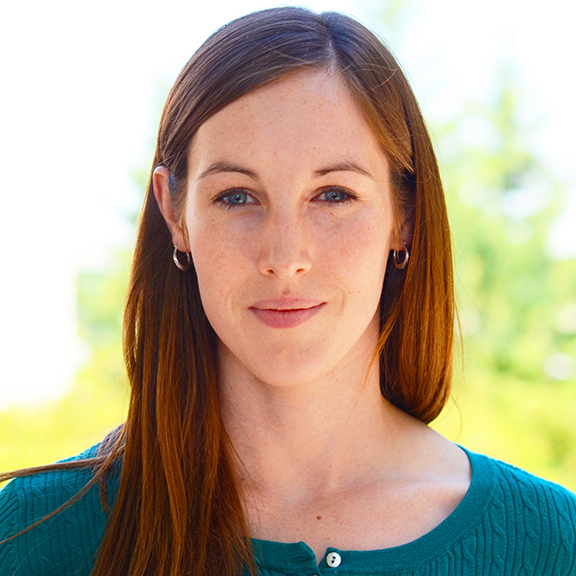











Research Team >> M.Sc. Students >> Susan Anderson
Susan Anderson (2015-2017)

|
I'm studying blue-green algae (cyanobacteria) blooms. These blooms can affect recreational lakes and sources of drinking water. In 2015, 25 recreational lakes in Alberta had health advisories from blue-green algae blooms. The advisories are due to nasty toxins that blue-green algae produce. If people swim in the lakes, they can get rashes, and if they drink the water, they can have liver or brain damage. The toxins can also kill cattle and dogs. Blue-green algae blooms can harm aquatic ecosystems because the blooms can lead to fish kills and disruptions of the food web.
For my thesis, I'm looking at the causes of these blooms. One of the main causes of excessive growth of blue-green algae is the availability of nutrients, specifically nitrogen (N) and phosphorus (P). Shallow lakes in Alberta are typically and naturally high in phosphorus, and blue-green algae can fix nitrogen, meaning the blue-green algae can grow rapidly, creating a bloom. Blooms often, but not always, lead to toxin production. I will investigate whether nitrogen fixation is limited by the salinity of the lake, specifically the amount of sulphate, and I'll also be looking at whether the ratio of nutrients (N:P) is related to the amount of toxins. This research is important because we need to understand more about how these diverse miccroorganisms interact with their environment so human actions don't contribute to increased blue-green algae blooms. I grew up on the Bow River, where I played in my backyard creek, catching minnows and running away from leeches. I had a hard time choosing what to study when I first went to university, and I changed my mind a lot (most everything is interesting!). I finally completed my undergrad degree in English with a biology minor at the University of Calgary in April 2015. I started my MSc in aquatic ecology here in the Jackson Lab in September 2015, and I'm enjoying how grad school lets me learn diverse skills. It's fun to think about the scientific process, do field work in lakes, learn statistics to analyze data, communicate my findings, while teachings labs to other students and learning from other researchers. |
